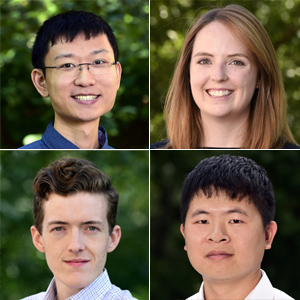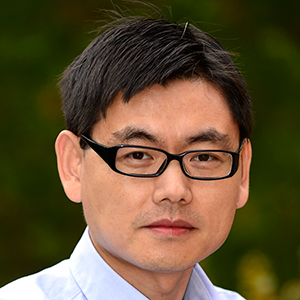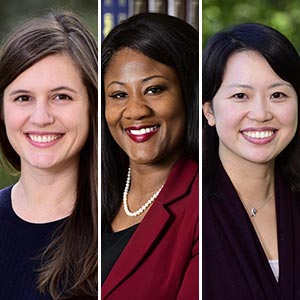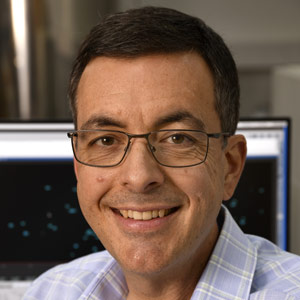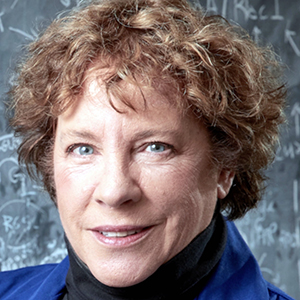In January, NIEHS welcomed two new tenure-track principal investigators to its ranks: Rajula Alleva Elango, Ph.D., and Julieta Lischinsky, Ph.D. Elango was recruited from a targeted search for the Genome Integrity and Structural Biology Laboratory. Lischinsky was selected as part of the NIH-wide Earl Stadtman program, which seeks to identify and recruit talent through a broad and cross-disciplinary search. Learn more about Elango and Lischinsky’s research, achievements, and future goals below.
Rajula Alleva Elango, Ph.D.
Elango is a tenure-track investigator who leads an independent research group within the Genome Integrity and Structural Biology Laboratory. She also has a secondary appointment in the Epigenetics and Stem Cell Biology Laboratory. Before joining NIEHS, Elango was a postdoctoral fellow at Harvard Medical School and the Beth Israel Deaconess Medical Center.
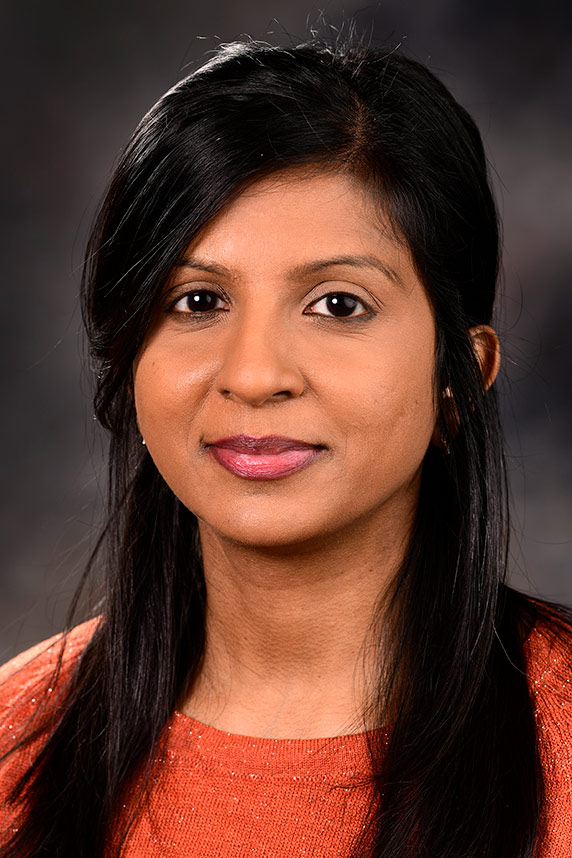
Education: University of Iowa (Ph.D. in biology); University of Mumbai (M.S. in life sciences); St. Xavier’s College, Mumbai (B.S. in life sciences)
Hobbies: Outside of scientific research, I enjoy spending time with family and taking my dog for long walks on the trail.
Why NIEHS? The institute encourages a collaborative work environment that provides strong support for my vision for research. NIEHS is also very focused on the success of trainees and provides them with the resources they need for their career growth.
Current research: My lab will focus on understanding the molecular fate of various DNA lesions in mammalian cells. Recently, I identified a novel role for the Fanconi anemia pathway in the repair of DNA-protein crosslinks (DPCs), a type of lesion that commonly arises in cells during replication and from other factors such as oxidative stress. My lab will use cutting-edge technologies to study how various DNA repair pathways are systematically coordinated to promote rapid and efficient repair of DPCs and several other DNA lesions in mammals. These studies will enhance our understanding of how repair pathways can be corrupted in a cell, contributing to premature cellular ageing and to the origin or progression of various diseases such as cancer.
What’s next? I am very excited to be able to advance the field of DNA damage and repair using the latest technologies in sequencing and genetic engineering. Adaptation of these techniques for my research will allow me to answer unique questions with a high level of resolution and precision. I am thrilled to work alongside some of the most brilliant researchers at NIEHS. I am also excited to be given the opportunity to mentor the next generation of trainees at NIEHS.
Julieta Lischinsky, Ph.D.
Lischinsky is an Earl Stadtman Tenure-Track Investigator and NIH Distinguished Scholar who leads the Neurobehavioral Circuits Group in the Neurobiology Laboratory. She also holds a secondary appointment in the Reproductive and Developmental Biology Laboratory. Prior to joining NIEHS, Lischinsky served as a postdoctoral fellow at the New York University Grossman School of Medicine.
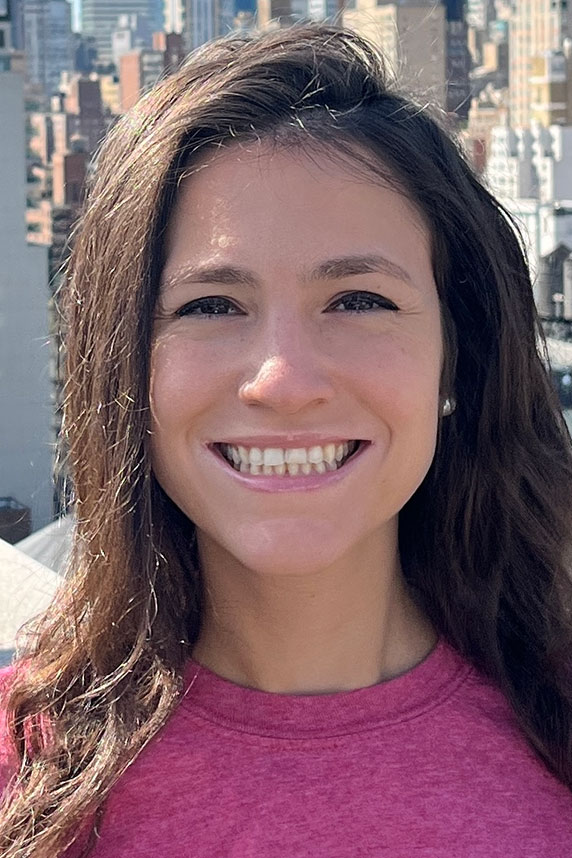
Education: The George Washington University (Ph.D. in molecular medicine); University of Toronto (B.S. with honors in neuroscience and psychology)
Hobbies: Outside of the lab, I really enjoy arts and theater, especially going to musicals and concerts. I have recently become a fan of comedy and improv shows and have taken advantage of being so close to the Raleigh Improv club. Additionally, I have always enjoyed playing sports such as ping-pong, and I look forward to joining a field hockey team in the Research Triangle Park area.
Why NIEHS? What really appealed to me about NIEHS was the diverse and complementary basic research being performed in the Neurobiology Lab and across the Division of Intramural Research. These allow for natural collaborations that leverage complementary scientific and technical strengths. In addition, the scientific resources provided to research groups across more than 10 shared core facilities is unmatched. I was also enthusiastic to learn about concrete efforts to promote diversity, equity, and inclusion in STEM, a topic that I care deeply about and look forward to being involved in. Finally, I was drawn toward working alongside bright, dedicated, and kind members of the NIEHS community with the shared goal of improving peoples’ health.
Current research: My research focuses on understanding how social information is processed and social behaviors are generated in the brain. Utilizing a mouse model, our group will investigate the developmental mechanisms by which aggression and other social behaviors are established during infancy and adolescence. We aim to provide an integrated view of social behaviors by analyzing whole-brain function at the levels of cells, circuits, and behavior. To this end, we will record and manipulate molecularly defined subpopulations in the limbic system during social interactions across sexes and developmental time points.
What’s next? I am the most excited about investigating how environmental factors during childhood — including early-life stress, social isolation, and environmental contaminants — are disrupting the underlying neuronal mechanisms and circuitry for social behaviors. Our group’s end goal is to develop appropriate, targeted therapies to address social behavior deficits in infants and adults.
(Ben Richardson, Ph.D., is a Presidential Management Fellow in the NIEHS Office of Communications and Public Liaison.)





